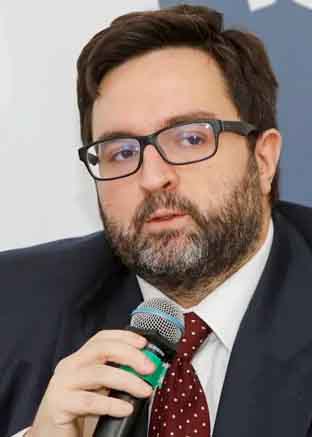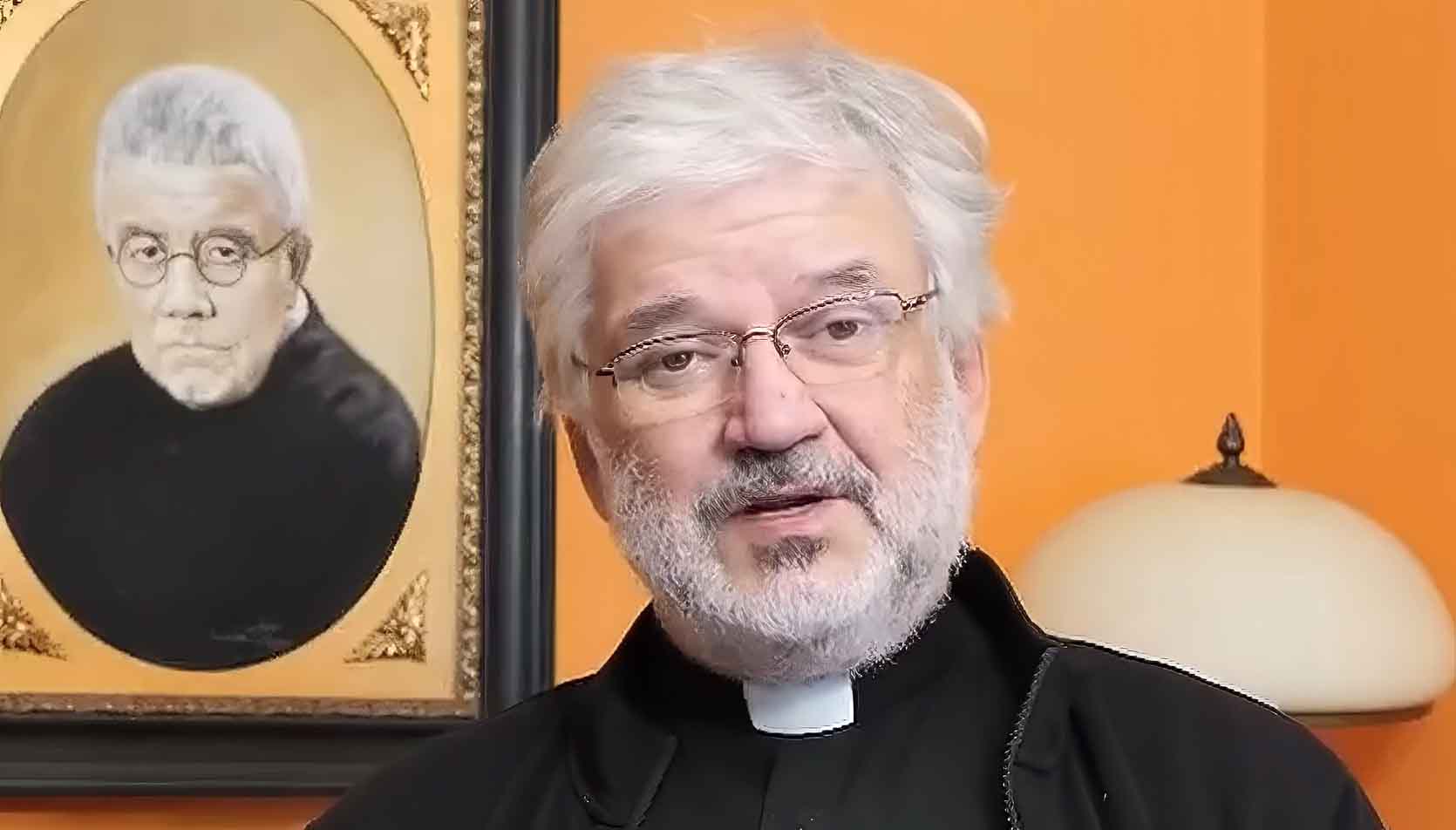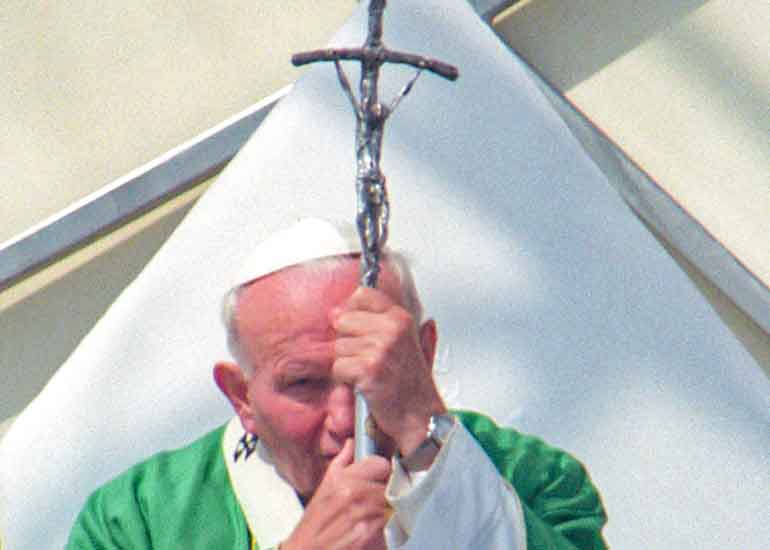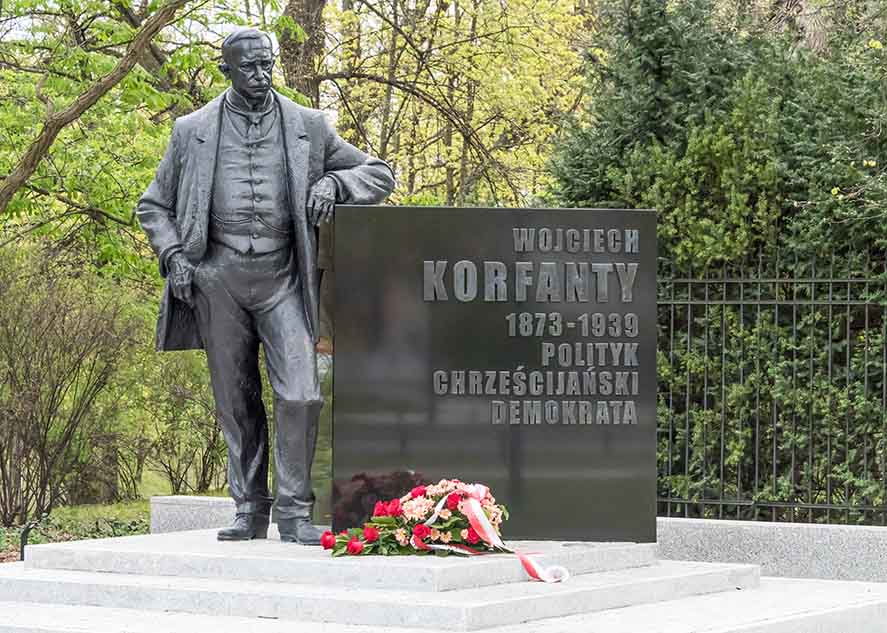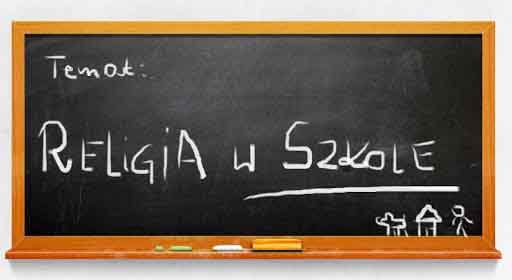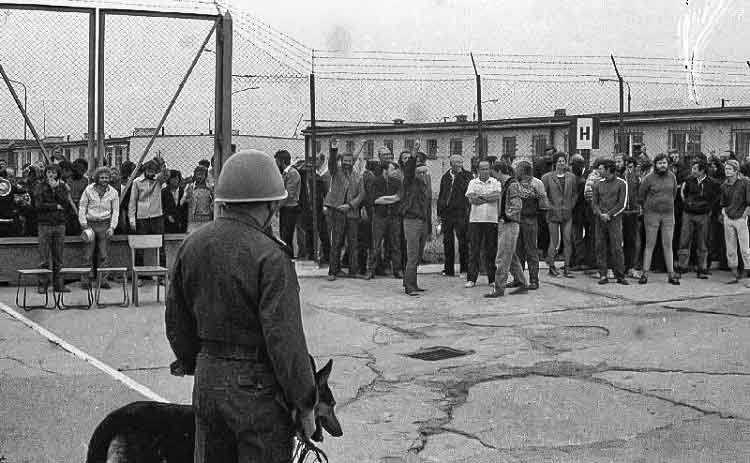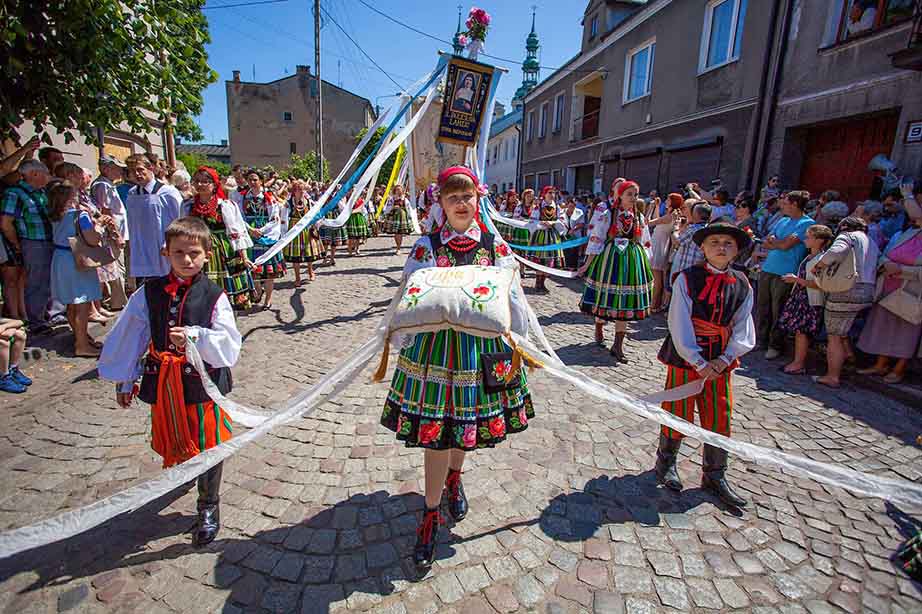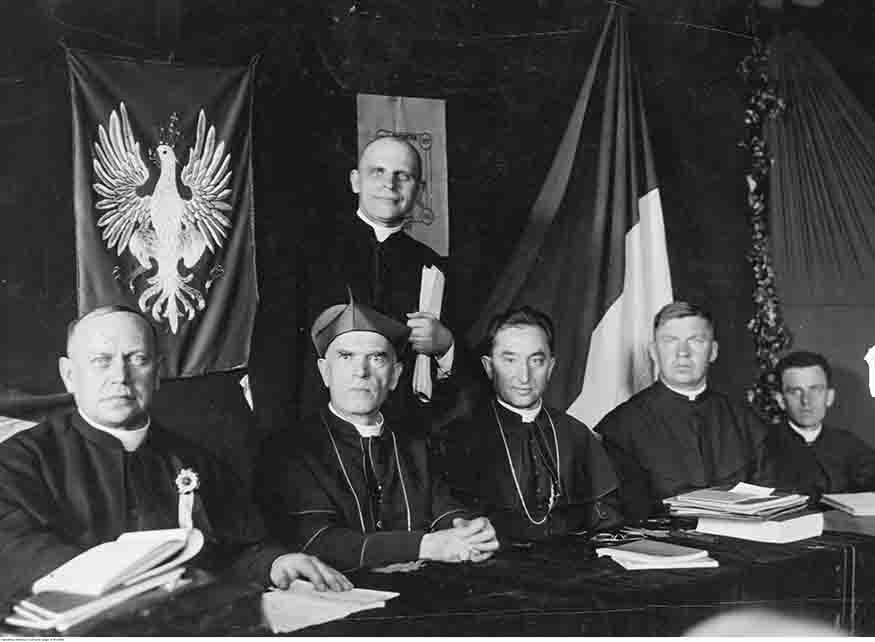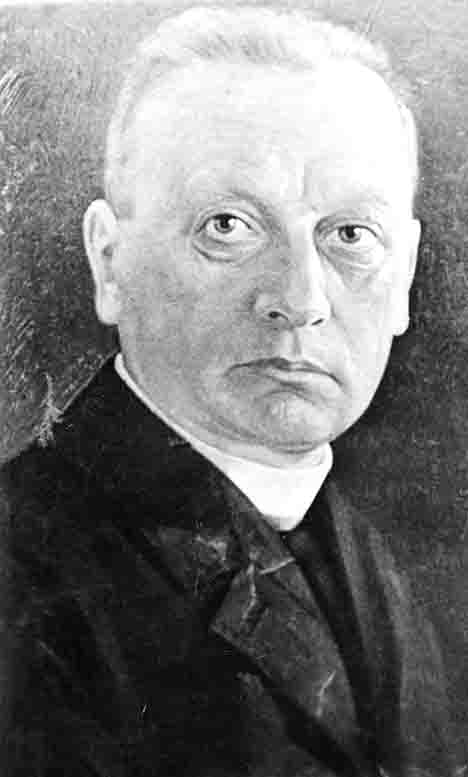28 May marks the 42nd anniversary of the death of the Primate of the Millennium, celebrated for the first time in the context of his recent beatification.
Stefan Wyszyński was born on 3 August 1901 in Zuzela by the Bug river, under the Russian partition. He was brought up respecting national and religious values. From his early childhood, he wanted to become a priest, so in 1917 he entered the Pius X Grammar School, and then the Major Seminary in Wloclawek. He was ordained in 1924. He developed his interests during his studies at the Catholic University of Lublin, and then during a scientific trip to Western Europe. The acquired education prepared the young priest well for active pastoral work in all social groups.
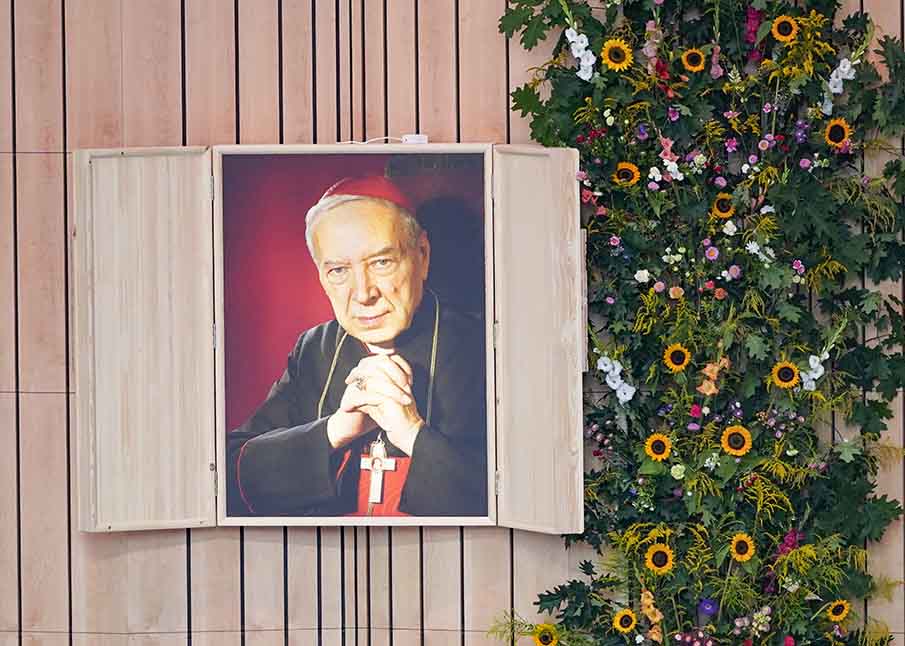
Beatification portrait of Cardinal Stefan Wyszyński during Holy Mass. beatification ceremony on September 12, 2021 at the Temple of Divine Providence in Warsaw. PHOTO: Mateusz Wlodarczyk/Forum. (Source: DlaPolonii.pl)
During the Second World War, he stayed outside his diocese because he hid from the Gestapo, among others in Kozłówka, Zakopane and Laski. In the spring of 1944, he was sworn in as chaplain to District VII ‘Obroga’ of the Warsaw District of the Home Army. The future cardinal took the pseudonym ‘Radwan III’. He took part in the Warsaw Uprising as a chaplain of the insurgent hospital situated in Laski. In March 1945 he returned to Wloclawek, where he became the rector of the Higher Seminary and started to organise the seminary. The active work he had begun was interrupted in 1946 by Pius XII's decision to nominate Wyszyński as Bishop of Lublin.
After the unexpected death of Cardinal Hlond on 16 November 1948, Pope Pius XII appointed him Archbishop of Warsaw and Gniezno and Primate of Poland. Like his predecessor, Archbishop Wyszyński was endowed with the extraordinary powers of the Papal Legate, which were connected with the difficult conditions for the functioning of the Church in Poland under the communist regime. The Primate emphasised the continuity of activities with his late predecessor. Until his death, he invariably presided over the Polish Episcopate (except for the period of his imprisonment in the years 1953-1956). In his activities, Primate emphasized the preservation of internal unity among bishops, rightly believing that this was the only way to save the Church from disintegration.
Cardinal Wyszyński always placed the nation above the state. This resulted from the hierarch's conviction that Polishness was a more permanent entity and much more deeply rooted in reality than any administrative structure set up by citizens. The Primate estimated that the political and systemic changes brought about by the end of World War II would prove more permanent than one generation, and the situation in which Poland found itself would not change in the foreseeable future. For this reason, he believed that the Church was forced to work out a kind of modus vivendi with the communists, which would enable this institution to carry out its pastoral mission. At the same time, he opposed attempts to subordinate the clergy to the state. This was expressed in the famous letter Non possumus sent to the authorities by the Episcopate in May 1953. Apart from the lack of consent of Cardinal Wyszyński to condemn Bishop Czesław Kaczmarek sentenced in the show trial, it was the main reason for the arrest of the Primate by functionaries of the security apparatus on the night of 25/26 September 1953.
The Primate was imprisoned for a further three years. He was held in isolation successively in Rywałd, Stoczek Warmiński, Prudnik and in Komańcza. During that time he was deprived of all rights, even those of imprisoned persons. During his imprisonment, Cardinal Wyszyński made a personal surrender to Mary's maternal slavery and worked out the assumptions of the programme of the Great Novena and the Millennium of the Baptism of Poland. He also formulated the text of the Jasna Góra Vows of the Polish Nation. It was delivered to Jasna Góra, and the Vows were taken by a million believers - without the participation of the Primate - on 26 August 1956.
At the end of October 1956, representatives of the state authorities arrived in Komańcza, informing Cardinal Wyszyński about the end of his isolation and asking for a quick return to the capital. The Primate presented them with the conditions for his return, including the release of other bishops, the cancellation of the decree on filling church posts and the resumption of the work of the Mixed Commission of the Episcopate and the Government. His conditions were met. Cardinal Wyszyński returned to the capital on 28 October 1956. Thanks to his determination, the Church gained partial acceptance for its activities, which the communist authorities had refused until then.
The main concern of the Primate, contained in his teaching after his return from prison, was the strengthening and deepening of faith in the nation. On 3 May 1957, Cardinal Wyszyński initiated a long-term pastoral programme, which he called the Great Novena. Particular emphasis was placed on deepening the faith and religious-moral renewal of the Polish nation after the moral devastation caused, among other things, by the policies of the communist regime. The ideological dispute over the vision of Poland assumed its most violent character in the years 1965-1966, and was connected with the letter of the Polish bishops to the German bishops and the year of celebrating the Millennium of the Baptism of Poland. The Primate reacted to all major socio-political events in the People's Republic of Poland. After student protests in March 1968, together with the Episcopate, he spoke out in defence of students who were imprisoned and expelled from universities. At the same time, he pointed out that the anti-Semitic campaign initiated by the authorities at that time would contribute to the deterioration of the image of Poles in the West, speaking in the context of the communists' actions of a 'monstrous shadow [...] of renewed racism'. In December 1970, when protests of workers on the Polish Coast broke out, the Primate sympathized with social discontent.
During the period of Edward Gierek's rule in Poland, Cardinal Wyszynski strengthened the Church's insistence on expanding social rights and freedoms, far beyond the demands of religious freedom. The Primate believed that the Church should persistently strive to broaden social freedom, especially in the area of religious rights, and to significantly increase its influence on social policy.
The election of Cardinal Karol Wojtyła as Pope, which took place on 16 October 1978, was very significant for the Primate. One of his closest associates, a likely successor to the Primate, with whom he had been friends in the 1970s, was elected to the most important office in the Church. Immediately after the conclave, the Primate officially invited the Pope to Poland. He also played a key role in negotiations with the authorities and preparations for the papal pilgrimage. The visit of John Paul II from 2 to 10 June 1979 was a great success of the Polish Church and became one of the most important causes of the 'Solidarity' revolution. When workers' strikes broke out in Poland in the summer of 1980, the Primate undertook a two-pronged action - he called for calming the situation and at the same time supported the strikers' most important demand - the establishment of independent trade unions. He supported the creation of the Independent Self-Governing Trade Union 'Solidarity'.
The Primate had been seriously ill since 1977, and a recent recurrence in April 1981 made it impossible for him to be active. On 12 May 1981, he celebrated his last Holy Mass. He asked for prayers in his intention to be offered for the Pope, seriously wounded in the assassination attempt on St Peter's Square in Rome, and a relevant statement recorded on a tape was distributed in churches throughout Poland. Cardinal Wyszyński died on 28 May. The funeral took place on 31 May 1981 and was a great manifestation of the devotion of Polish society to the Church and the person of the deceased. On 12 September 2021 he was officially elevated to the altars as Blessed of the Catholic Church.



